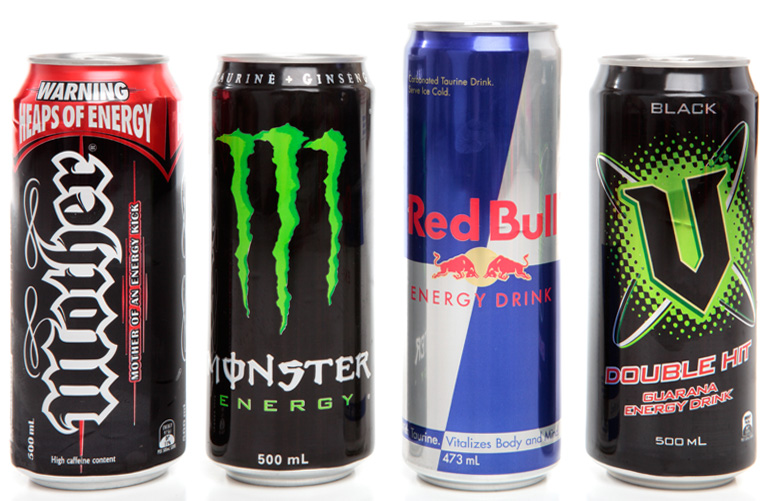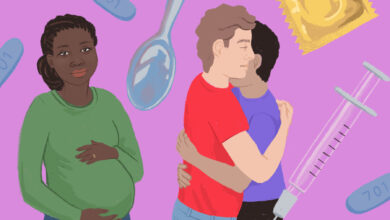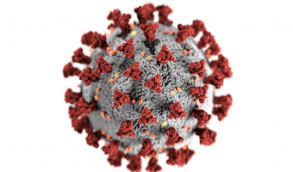Are Energy Drinks Secretly Deadly?

Energy drinks are popular among gamers, students, athletes, professionals, and anyone who has to drive overnight from Harare to South Africa . We all need a little energy boost now and then, but there are healthier ways to get it than energy drinks. Energy drinks are a chemical cocktail of caffeine, sugars, and a variety of other ingredients. Some of these, like herbs and vitamins, may even sound kind of healthy. But what is it that makes energy drinks so dangerous?

1. Excess Sugar
There are two main dangers to energy drinks—neurological and cardiological. In other words, your nervous system and your heart. The catalysts to these problems are also the very ingredients that make you feel energized—copious amounts of caffeine and sugar.
Energy drinks can contain up to 78 grams of sugar per serving. That’s 20 teaspoons of sugar every time you drink one.[10] Admittedly, that’s the high side of the scale, but these drinks average about 30 grams of sugar and 280 calories a can. That’s not health food. If keeping trim is your goal, drinking an energy drink you just made your job 280 calories harder. That’s about 35 minutes of burpees.
Even if you keep fit enough to stave off diabetes and weight gain, sugar isn’t done ruining your health. Excess sugar is one of the leading contributors to heart disease. One study found that people whose daily caloric intake included 25% or more of sugar were more than twice as likely to die from heart disease as those whose diets contained less than 10% sugar.
Many companies have sugar or calorie-free versions of their product. But the sugar is replaced with artificial sweeteners like aspartame that may be even worse for your health. They can interfere with your gut biome, damage your metabolism, encourage obesity, and cause diabetes.[12,13,14]
2. Caffeine
Exact amounts vary, but the average can of energy drink contains about 70-100 mg of caffeine about as much as a cup of coffee.[15] That doesn’t sound very dangerous, and to a healthy adult, it usually isn’t. You likely know someone who drinks six cups of coffee a day with no apparent side effects. Maybe you are that person.
It’s easy to miss these warnings. Manufacturers usually hide them in small print on the back of the can with the other nutritional info that no one reads. And that’s if it’s on there at all. Make no mistake, beverage companies want you to drink as much of their product as possible. The warnings seem to be more of an effort to protect companies legally.
According to the World Health Organization (WHO), energy drinks have a “proven negative effect on children.”[16] Nearly 50% people who overdose on caffeine are under 19 years old.[17] Adolescents should limit themselves to no more than 100 mg of caffeine a day. For children, the healthy amount is zero.[18]
3. Combined With Alcohol
In the early 2000’s eager for new profits, energy drink companies started marketing to the bar crowd. They urged bartenders to promote mixed alcohol and energy drinks like Jägerbombs and Red Bull vodkas. Sorry to be Johnny Buzzkill, but combining energy drinks with alcohol increases the dangers of both. Caffeine is a stimulant, while alcohol is a depressant. Combining the two in your body can mess up your system.
One way this manifests is as a “delayed drunk” feeling. The stimulant masks some of the sensory cues you normally rely on to determine your level of intoxication. In other words, you’re drunk, with the same loss of cognition and motor skills as usual, but you don’t know it. This means that you will likely drink far more, and far faster than you normally would.
Caffeine doesn’t change your actual blood alcohol level, just your perception of it. That means that as you drink more to hit your buzz, all the usual dangers of drinking are magnified. One study found that people who mixed alcohol and energy drinks were more than twice as likely to drive drunk and far more likely to be a passenger in a car with a drunk driver.[19] The urge to drink more also increases your risk of alcohol poisoning. If all that isn’t enough, your hangover will be worse, too.[20]
The Effect of Energy Drinks on Athletic Performance
Energy drinks are popular among athletes for their supposed performance-enhancing effects. But actually, energy drinks can actually ruin long term athletic performance.
Studies on the actual performance enhancing effects have revealed mixed results. Some studies find a minor boost, while other have found no performance enhancing effects at all.[22] The truth is that there’s no magic winning formula inside one of those cans. Any perceived performance enhancing effects can come from the simple formula of caffeine plus carbs, and there are healthier ways to get those.
Our bodies quickly build up a high tolerance for substances like caffeine and sugar. Prolonged overuse tends to have undesirable side effects. With sugar, it’s weight gain and diabetes. Caffeine reactions frequently include bowel instability, mood swings, and anxiety. Both can cause insomnia and other sleep disorders. A study published in the British Journal of Nutrition found that energy drinks significantly increased insomnia and nervousness in athletes.[23]
4. A Hidden Toxin: Aluminum
There’s one more potential source of toxicity in energy drinks that you probably haven’t thought of — the can. Aluminum cans have been the standard beverage container for decades, but aluminum is actually toxic to the human body. Obviously, no one is eating their can after sucking down a beverage (I hope). However, energy soft drinks are generally acidic, and trace amounts of aluminum will contaminate the beverage itself. The average American ingests about 7-9 milligrams of aluminum per day in food and drink.[24] These tiny amounts usually aren’t harmful, but higher amounts can cause disorders in the brain, bones, and nervous system including confusion, muscle weakness, brittle bones, and seizures. In children, aluminum toxicity can slow development.[25]
If you ingest a tiny amount of aluminum, your body’s natural healing processes can usually filter the toxins out. Consuming an excessive amount of canned beverages over a prolonged period of time is a different story. If toxic material builds up, it can overwhelm your system. Those with existing kidney problems are especially at risk because of a reduced capacity to filter toxins.[24]
The best thing you can do to quench thirst is mix up your own beverages fresh at home, but that’s not always practical. If you must buy pre-packaged beverages, I recommend only buying those in glass containers.
Energy Drink Alternatives
An overall healthy lifestyle with proper diet, plenty of rest, and regular exercise is really the best thing you can do to feel energized. However, there are times when everyone needs an extra little boost of energy. If energy drinks are off the table, what are your best options?
5. Ginseng
Most energy drinks market themselves as containing ginseng. Ginseng itself is great stuff. It improves energy, appetite, and sleep quality.[26] However, the ginseng in energy drinks is cheap, processed, low-quality, and present in such tiny amounts that its therapeutic effect is non-existent. [27] Add in the health-ruining amounts of sugar and shady ingredients, and ginseng’s benefits are not just wiped out, but reversed.
Why not just cut out the chemical cocktail and go straight to the source? I highly recommend a high-quality ginseng supplement. Ginseng effectiveness is dependent on quality, and quality varies considerably. Do your homework. Only buy from a company that uses natural ingredients and is 100% transparent about sourcing.
6. Vitamin B12
If you feel constantly drained, you may be one of the 40% of Americans that are vitamin B12 deficient. [28] B12 deficiency leads to low red blood cell count—a type of anemia. Symptoms include fatigue, weakness, and difficulty concentrating.[29, 30] Red meat, mollusks, and dairy are the richest sources of B12. There are non-meat sources, but If you follow a vegan or vegetarian diet (as I do), you may want to consider a quality B12 supplement.
7. Black and Green Tea
If you absolutely need that caffeine boost in the morning, at least find it from a better source than energy drinks. Black or green tea can provide a similar mental boost. Tea has less caffeine than energy drinks and causes fewer sleep disruptions.[31] According to two double-blind, randomized, placebo-controlled studies, black tea improves attention and self-reported alertness. [32] The combination of theanine and caffeine, naturally occurring ingredients in tea, improves cognitive performance. [33]
I recommend that tea option for adults and teens only, this one is not for children. While tea has significantly less caffeine than energy drinks, any caffeine at all is a potential health risk to a developing brain and body.
8. Nuts
If you’d need some quick energy, try a handful of nuts. Nuts are nutrient-dense and help your body sustain high energy levels. [34] In addition to high-quality protein, they also provide carotenoids, phenolic acids, phytosterols, and flavonoids. These nutrients promote physical and mental well-being, helping the body sustain higher energy levels. Walnuts, almonds, cashews, hazelnuts, macadamias, pecans, and pistachios will give you the best bang for your buck. [35]
9. Water
If you’re feeling irritable and tired you may actually be slightly dehydrated. Studies show that even mild dehydration can cause drastic changes in mood and energy levels. [36,37] It’s important to stay properly hydrated, especially when exercising. Leave the brightly colored sports drinks at home. Blue dye isn’t going to help you. “Electrolytes” is just a fancy marketing word for potassium and salt. It is necessary to replace lost minerals after an intense workout. You can get the safe effect by adding a pinch of Himalayan crystal salt to regular old water.
10. Exercise
It may sound counterintuitive, but exercise will actually make you feel less tired. Regular exercise is the best for energy levels, weight control, and overall quality of life. [38] In a pinch , even five minutes of light, low-intensity exercise can boost your mood, concentration, and energy levels. [39]




